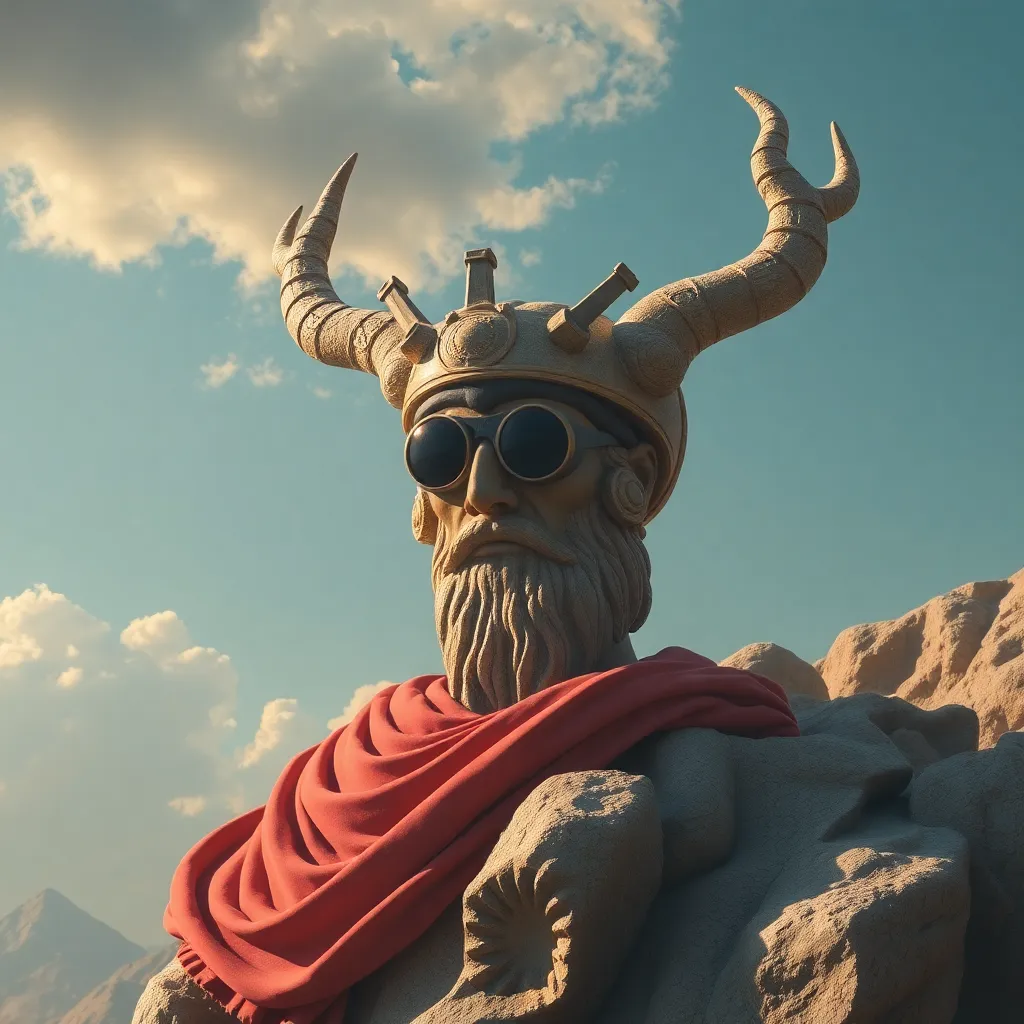The Cyclops and the Hero’s Journey: A Psychological Perspective
I. Introduction
The Cyclops, a one-eyed giant from Greek mythology, has captivated the imagination of countless generations. His portrayal in various myths, particularly in Homer’s “Odyssey,” serves as an archetype of brute strength and isolation. The Cyclops embodies the challenges and obstacles that heroes must confront in their journeys. In this article, we will explore the Cyclops through the lens of the Hero’s Journey framework and analyze the psychological implications of this mythological encounter.
The Hero’s Journey, a concept popularized by Joseph Campbell, outlines a universal pattern found in myths and stories across cultures. This framework provides a structure for understanding the challenges and transformations that heroes undergo. Psychological interpretations of these myths reveal deeper meanings and insights into human behavior and development.
II. The Hero’s Journey: A Brief Overview
The Hero’s Journey consists of several stages that a hero typically experiences, which can be broken down as follows:
- Call to Adventure: The hero is invited to leave their ordinary world.
- Refusal of the Call: The hero initially hesitates or refuses the call.
- Meeting the Mentor: The hero encounters a mentor who provides guidance.
- Crossing the Threshold: The hero enters the unknown world.
- Tests, Allies, and Enemies: The hero faces challenges and meets allies and foes.
- Approach to the Inmost Cave: The hero prepares for a significant challenge.
- The Ordeal: The hero faces their greatest challenge.
- Reward: After overcoming the ordeal, the hero gains a reward.
- The Road Back: The hero returns to the ordinary world.
- Resurrection: The hero faces a final test, leading to transformation.
- Return with the Elixir: The hero brings back knowledge or power to share with others.
Each stage of the Hero’s Journey is crucial for the psychological development of the hero. The challenges faced often reflect internal struggles that facilitate personal growth and self-discovery.
III. The Cyclops as an Archetype
The Cyclops is a significant figure in literature and mythology, often depicted as a fierce creature with immense strength and a singular eye. In Homer’s “Odyssey,” the Cyclops Polyphemus captures Odysseus and his men, representing both a physical and psychological obstacle.
Psychologically, the Cyclops can symbolize various challenges that individuals face in their lives, such as:
- Obstacles created by external forces
- Instinctual fears and primal urges
- Isolation and the struggle for identity
The Cyclops embodies the darker aspects of the psyche, representing the fears and challenges that one must confront in order to achieve growth and transformation.
IV. The Encounter with the Cyclops: A Turning Point
The encounter between Odysseus and the Cyclops serves as a pivotal moment in the narrative. Odysseus’s confrontation with Polyphemus is not just a physical struggle but a psychological battle as well. This encounter forces Odysseus to confront his fears and limitations.
Psychologically, facing the Cyclops can be seen as a metaphor for dealing with one’s fears and adversities. The implications of this confrontation include:
- Recognizing and confronting personal demons
- Understanding the importance of strategy and intellect in overcoming challenges
- Transformative growth that arises from adversity
Ultimately, the role of the Cyclops as an adversary is crucial for the hero’s transformation and growth, encouraging the hero to evolve through the experience.
V. Themes of Isolation and Identity
The Cyclops is often portrayed as a solitary figure, which speaks volumes about the psychological implications of isolation. This solitary nature can lead to a profound exploration of identity, as the hero must navigate their own sense of self in contrast to the Cyclops’s isolation.
Key points to consider regarding isolation and identity include:
- The Cyclops’ isolation reflects the fear of being misunderstood or rejected.
- Isolation can lead to self-discovery and introspection for the hero.
- The journey through isolation fosters resilience and personal growth.
The hero’s journey through these themes illustrates how overcoming isolation can lead to a more profound understanding of oneself and one’s place in the world.
VI. The Role of Intellect and Strategy
In the face of the Cyclops, Odysseus relies on his wit and cunning rather than brute strength. This aspect of the encounter highlights the psychological tension between intelligence and physical power. The hero’s ability to outsmart the Cyclops underscores the importance of strategy in overcoming challenges.
Key lessons derived from this encounter include:
- The value of intellect over sheer force in problem-solving.
- The necessity of resilience and adaptability in the face of adversity.
- The power of creativity and ingenuity in overcoming obstacles.
This psychological analysis reveals that while physical strength may seem advantageous, it is often the hero’s intellect that leads to true victory.
VII. The Aftermath of the Encounter
Following the confrontation with the Cyclops, Odysseus experiences significant growth and transformation. This journey is marked by the psychological effects of trauma and victory, as the hero grapples with the consequences of his encounter.
Some notable outcomes include:
- Increased confidence and resilience as Odysseus continues his journey.
- Psychological scars from the traumatic experience that shape future decisions.
- The Cyclops remains a lingering influence, symbolizing challenges yet to come.
These effects illustrate the lasting impact of such encounters on the hero’s psyche and their journey toward self-actualization.
VIII. Conclusion
In summary, the Cyclops plays a crucial role in the Hero’s Journey, serving as both an obstacle and a transformative figure for the hero. The psychological lessons derived from this myth highlight the importance of facing fears, the value of intellect in overcoming challenges, and the profound themes of isolation and identity.
Through the lens of mythology, we gain valuable insights into human behavior and the universal struggles we face in our own lives. The analysis of the Cyclops and the Hero’s Journey not only enriches our understanding of ancient narratives but also offers enduring lessons applicable in contemporary contexts.




